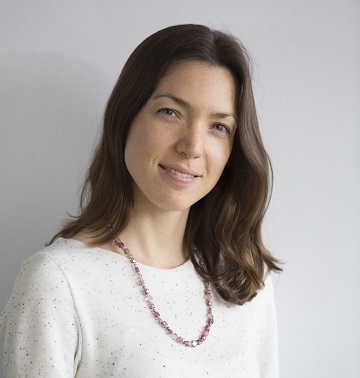 The words ‘young people’ and ‘mental health’ are not usually associated with optimism. The most recent report from the NHS, released in 2018, suggested a worrying increase in mental and emotional disorders for those aged 5-19.
The words ‘young people’ and ‘mental health’ are not usually associated with optimism. The most recent report from the NHS, released in 2018, suggested a worrying increase in mental and emotional disorders for those aged 5-19.
And yet Dr Nihara Krause, a clinical psychologist who has spent her whole career working with young people, is not despondent, despite recognising the challenges:
“I think it’s really tough to be a young person today. This is a generation which is assessed so much and is constantly being evaluated, whether in school or on social media. There is the pressure to succeed, to be the best, to be perfect. That’s challenging – and yet they’re fantastic in so many ways. They are so accepting and open-minded about things like gender and sexuality, plus there is much more awareness around their mental health today than ever before.”
Nihara should take some credit for the upswing in the national conversation. For the past decade she has been supporting the emotional resilience of young people via stem4, a charity she founded to provide immediate access to clinically-accurate mental health resources. Her work is now being supported by Nominet’s new mental health funding programme, #RESET, with the money helping to ensure stem4’s digital resources continue to evolve in line with the changing needs of young people today.
“stem4 has always just been about tackling the unmet needs of this generation,” she explains, “and to be honest I never had any intention of running a charity. It started as a website and it completely snowballed from there.”
It also started with an incident that alarmed this experienced clinician. Nihara was asked into her daughter’s school following the death of a 16-year-old pupil from an eating disorder. “They wanted me to help support the school community,” she says. “So many people, friends or teachers, admitted to me that they had suspected something was wrong but didn’t know how to help. It was just heart breaking and I knew I had to do something.”
Fast forward ten years and stem4 is perhaps best known for mental health apps that provide support for those with issues such as anxiety. These are the products of Nihara’s ongoing dialogue with her key audience. “I just ask young people what they want and of course apps are great because this is a generation used to things being immediate. They may have to wait months to get an appointment on the NHS, but they can access something straightaway online.”
That said, Nihara has still been blown away by the reception. To date, stem4’s three apps have been downloaded 1.5 million times in over 170 countries, “and all that is without any marketing because we simply didn’t have the money,” she says. “We are thrilled to now have a grant from Nominet which we can invest into things like marketing to increase our reach, as well as researching more widely with a view to adding more into the apps, perhaps to provide support for parents and carers too.”
Technology can be a useful tool in mental health support but, stresses Nihara, “it can never completely replace the human connection” – a belief reinforced by her experience during lockdown.
“Running my clinic online made me realise how difficult it is when you can’t communicate all the non-verbal signs that convey empathy via a video link,” she says. “But it was vital that we maintained the contact because social isolation is incredibly hard for people coping with issues such as depression or trauma. As soon as the lockdown was announced, I created new resources for the website and we had over 3,000 visits in that first week. People were really crying out for help.”
A compulsion to provide just that is hardwired; Nihara traces it back to growing up within a family of doctors. “I grew up assuming I would go into medicine,” she says, “but ended up changing courses at university to study psychology instead. I was good at the sciences, but I was also very creative and realised that I needed to find my own path and pursue something that combined all my interests.”
She made the right choice, she says, and counts herself fortunate to have been able to join the profession. She worked for many years with the NHS as a specialist in eating disorders and self-harm before setting up a private practice to allow her more time to spend with her children. It is more satisfaction than pleasure, she admits pragmatically: “I couldn’t say I enjoy my work as a psychologist because it can be a very emotionally hard process, but I am incredibly committed and continue to learn so much from every single person I work with. I have found a job that is really ‘me’.”
It also keeps her exceptionally busy. Alongside running her practice and stem4, she is often called upon as an expert in her field by the media or by institutions such as the Children’s Society and the House of Lords for their enquiry into the Internet and Mental Health. Incredibly, she has also found time to publish a novel, with ambitions to write another, “a better one – I am always looking to improve. But that’s just me.”
There is plenty to keep this self-confessed “dynamo” busy. While Nominet’s funding will support her ambitions around stem4, we can’t assist with her ultimate desire: “I would just like more time, to be honest! I’m lucky I can work quickly but there are so many things I am interested in and so many different groups I’d like to help. More time is all I need.”


